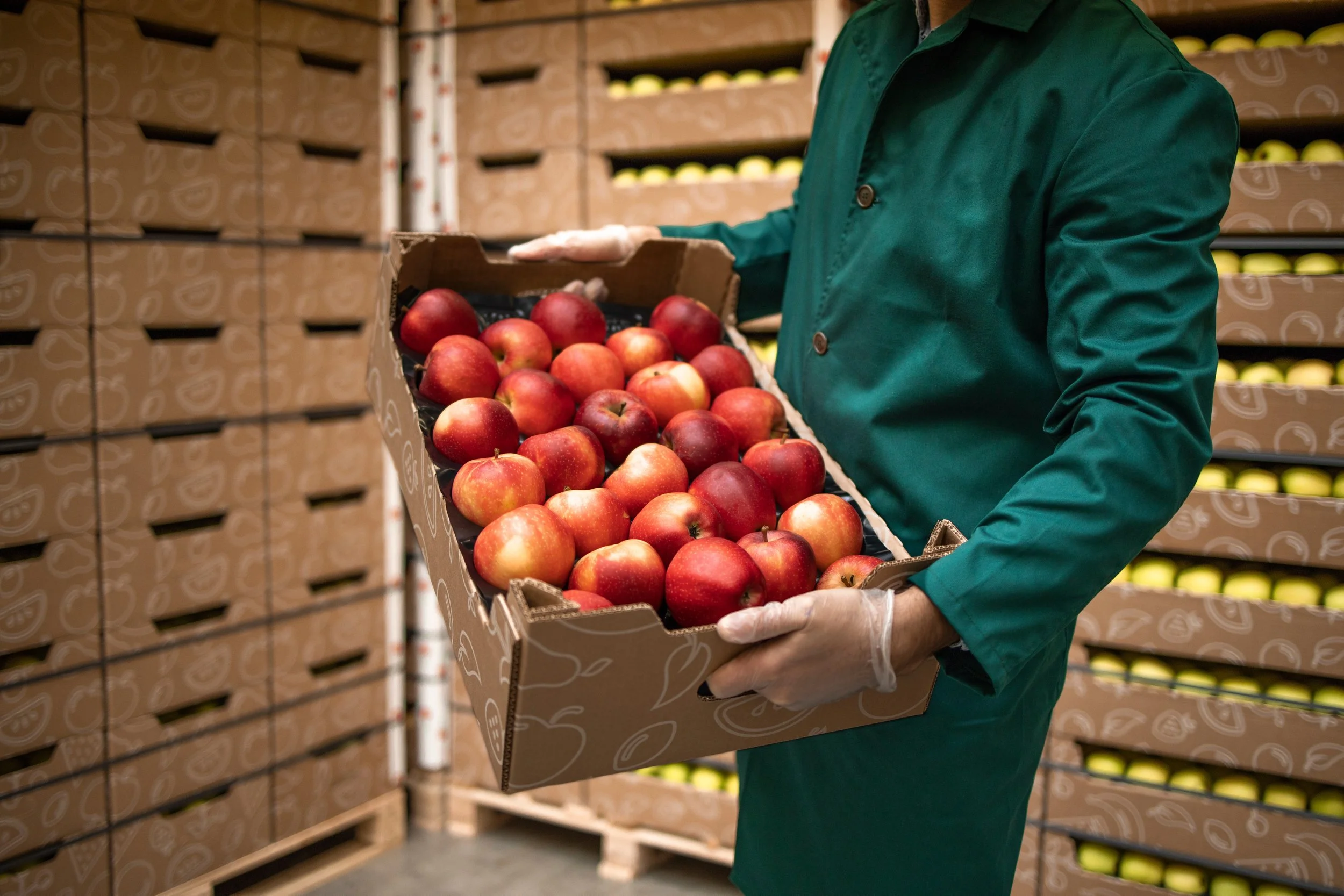Optimizing Your Produce Supply Chain with Pallets
How Pallets Power a More Efficient Produce Supply Chain
The fresh produce supply chain relies heavily on timing for success. From harvest to shelf, every step in the supply chain must be optimized for speed, hygiene, and stability. Pallets play an essential, though often underappreciated, role in keeping fruits and vegetables fresh, safe, and moving.
Understanding how to select the right pallets and utilize them effectively can make a significant difference in reducing waste, controlling costs, and delivering top-quality produce to market.
Why Pallets Matter in the Produce Industry
Fresh produce is highly perishable and vulnerable to bruising, temperature fluctuations, and contamination. That’s why produce supply chains rely heavily on carefully selected materials and transportation systems, starting with pallets.
The right pallet helps:
Maintain airflow around delicate items.
Protect against contamination and moisture.
Enable easy handling in high-throughput environments, such as farms, processing facilities, distribution centers, and grocery warehouses.
Poor pallet quality or the wrong design can lead to damaged goods, rejected shipments, and costly delays.
4 Factors in Choosing Pallets for Produce
When it comes to transporting fresh produce, not all pallets are created equal. The right choice can preserve freshness, reduce waste, and keep your supply chain running smoothly, while the wrong pallet can lead to costly damage or contamination.
Below are four key factors to consider when selecting pallets that meet the unique demands of the produce industry:
1. Hygiene and Compliance
Food safety regulations, such as those outlined in the FDA’s Food Safety Modernization Act (FSMA), require supply chain partners to adhere to strict sanitation protocols. Pallets used in produce transport must be free of mold, contaminants, and pests. Heat-treated wood pallets that comply with ISPM-15 standards are a popular choice for export, while plastic pallets are often used for washdown environments.
2. Ventilation and Airflow
Ventilated pallets and stackable crate-compatible designs help maintain airflow, reducing heat buildup and minimizing the risk of spoilage. This is especially important during the storage and transportation of items such as leafy greens, berries, and citrus.
3. Load Stability
Produce is often packed in lightweight boxes or cartons that can shift easily during transport. Custom pallets designed to fit your packaging dimensions can improve load stability and reduce bruising or crushing during shipment.
4. Reusability and Durability
Reusable, recycled pallet programs are becoming increasingly common in the produce sector, helping to reduce costs and environmental impact. Pallets used in this model must be built to last and withstand repeated handling, often across multiple regions or temperature zones.
Unique Challenges of Transporting Fresh Produce
Transporting fresh produce presents distinct challenges that set it apart from other industries. These include:
Perishability and Shelf Life
Fresh produce has a short shelf life, making time a critical factor. Any delay during transit or storage can lead to spoilage and product loss, which directly impacts profitability.
Temperature Sensitivity
Many fruits and vegetables must be transported within a specific temperature range to maintain quality. Even slight deviations can lead to discoloration, texture changes, or microbial growth. Cold chain logistics must be strictly maintained throughout the supply chain.
Humidity and Moisture Control
Excessive humidity can cause mold and rot, while too little can result in dehydration and wilting. Pallet materials and configurations must allow for proper airflow and moisture regulation to prevent damage.
Delicate Packaging
Produce is often packed in lightweight, breathable materials like open-top cartons or crates, which are more susceptible to shifting or collapsing. Pallets must be designed to support these configurations and reduce the risk of bruising or damage.
Load Stability
Because produce packages are frequently light and stackable, unstable loads are common without proper pallet fit and design. Custom pallets help ensure the load is secure and protected during transit.
Sanitation and Food Safety Compliance
Pallets used in the transportation of fresh produce must meet strict hygiene standards. Heat-treated wood and washable plastic pallets are commonly used to prevent contamination and comply with FDA and ISPM-15 regulations.
Seasonal and Regional Variability
Produce supply chains are influenced by seasonality and geography, necessitating flexible pallet programs that can scale or adjust to varying volumes, transportation conditions, and end-user requirements.
How Pallets Support a More Resilient Produce Supply Chain
Optimizing pallet use isn’t just about selecting the right materials—it’s about understanding how pallets integrate into every link in your supply chain. For example:
Harvesting operations benefit from lightweight, easy-to-carry pallets for field loading.
Processing facilities require standardized pallets that flow efficiently through conveyor systems and washdown zones.
Cold chain logistics rely on pallets that can withstand low temperatures without warping or deforming.
Retail and foodservice distributors rely on clean, consistently sized pallets that can be moved quickly without risk to workers or products.
In short, the right pallet strategy enhances safety, sustainability, and reliability throughout the entire supply chain, from farm to fork.
The Bottom Line with Produce Supply Chain
Your produce supply chain is only as strong as the tools you rely on—and pallets are a foundational part of that toolkit. Whether you’re working with growers, packers, or retailers, choosing the right pallets and supply partners can make a measurable difference in product quality and operational performance.
Partner with Experts Who Understand Your Produce Supply Chain
If you’re ready to take a closer look at how pallet strategy impacts your produce operations, Olympic Forest Products can help. We offer custom pallet design, inventory management services, and sustainable sourcing solutions tailored to the needs of food and agricultural businesses.
Contact our team to explore options that support both your bottom line and your commitment to quality.

